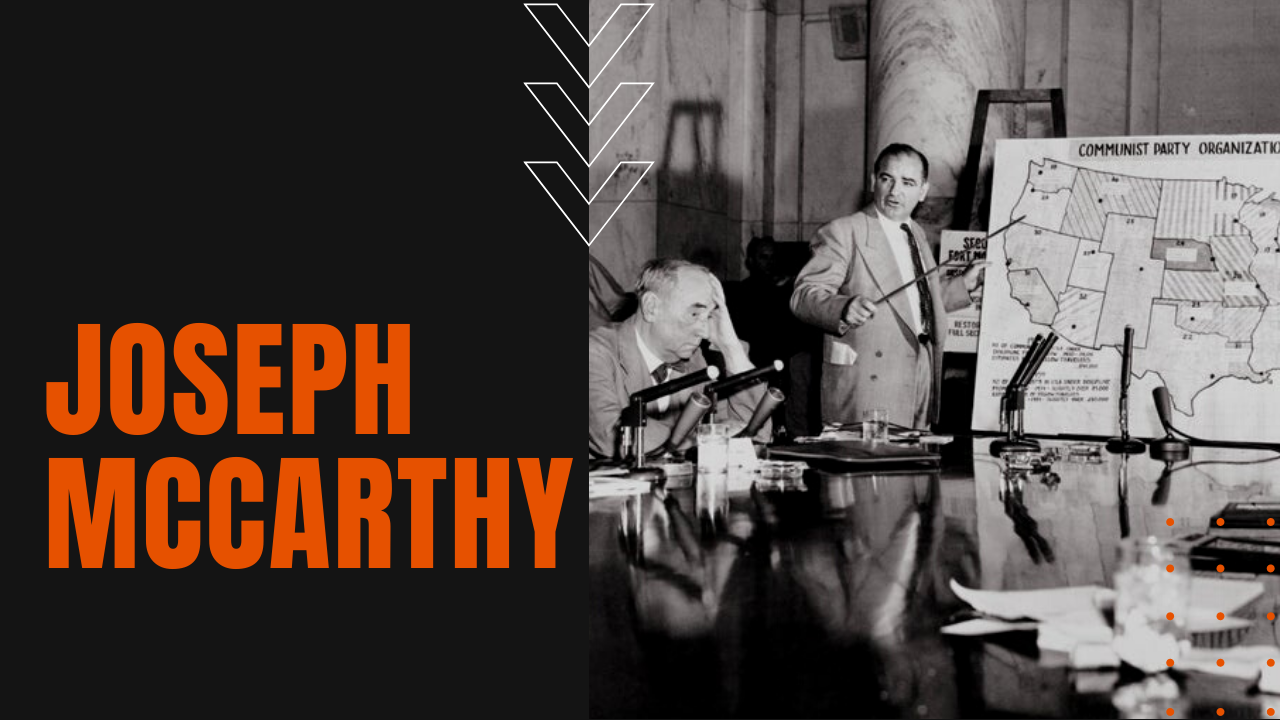Joseph McCarthy: Cold War Conspiracies and McCarthyism

During the early nervous days of the Cold War, Republican Senator Joseph McCarthy fueled the anti-communist Red Scare movement by alleging that numerous Communists and Soviet sympathizers had infiltrated the federal government, universities and the arts at large.
Who Was Joseph McCarthy?
After winning a U.S. Senate seat from his home state of Wisconsin, McCarthy’s first three years in the Senate were undistinguished, until he rose to national fame in 1950 when he asserted in his now-infamous “Enemies Within” speech that he had a list of members of the Communist Party and members of a communist spy ring employed at the State Department.
He would later broaden his finger pointing to include the administration of President Harry S. Truman, the Voice of America, political opponents, suspected homosexuals and many A-list names in literature and Hollywood, including Langston Hughes and Dorothy Parker, Charlie Chaplin, Orson Wells, Leonard Bernstein, Pete Seeger, Burl Ives and Lena Horn.
Known as McCarthyism, Joseph McCarthy used his seat on the Senate’s Permanent Subcommittee of Investigations, where some of McCarthy’s most publicized Red Scare accusations took place.
Army–McCarthy Hearings
His downfall would come in the Autumn of 1953 during the 36-day Army-McCarthy Hearings, when McCarthy’s committee began its ill-fated inquiry into the Army Signal Corps laboratory at Fort Monmouth.
Broadcasted via the Big Three news networks, public opinion began to see McCarthy as bullying, reckless and dishonest, while many Republican lawmakers began to see McCarthy as a liability to the party. On the 30th day of the Army-McCarthy Hearing, after McCarthy challenged the Army’s chief legal representative Joseph Nye Welch to investigate a Boston lawyer named Fred Fisher, Welch had finally had enough of McCarthy’s ruthless badgering and unfounded finger-pointing.
On December 2nd, 1954, the Senate voted to censure and later condemn McCarthy in a 67 to 22 landslide vote. Among the charges against McCarthy was that he used his committee authority as a “lynching party,” making the committee into an “unwitting handmaiden” and an “involuntary agent” and “attorneys in fact” of the Communist Party.
Three years later, Joseph McCarthy would die from alcoholism, at just 48 years of age.
